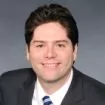- with readers working within the Metals & Mining, Pharmaceuticals & BioTech and Retail & Leisure industries
- within Litigation and Mediation & Arbitration topic(s)
- in Africa
A district court in the Western District of Washington denied Adaptics Ltd.'s ("Adaptics") motion for summary judgment of patent exhaustion, which was based on a theory that an authorized sale by a downstream reseller can exhaust patent rights against an upstream manufacturer. The plaintiff, Perfect Company ("Perfect"), alleged that two of Adaptics' app-based products infringed Perfect's U.S. Patents No. 8.829,365 and No. 9,772,217. Perfect also sued Apple Inc. ("Apple"), alleging that Apple's sale of Adaptics' products infringed the same patents.
Perfect ultimately settled with Apple, agreeing not to sue Apple or Apple's customers for infringement of the asserted patents. That settlement included a carve out excluding from the agreement Perfect's infringement claims against Adaptics. Adaptics filed a motion for summary judgment alleging that, despite the carve out, Perfect's settlement with Apple exhausted Perfect's patent rights in the accused products. If it did not, Perfect could recover twice on the value of its patent. Perfect disagreed, arguing that patent exhaustion only applies to subsequent, downstream purchasers after an initial authorized sale; it does not apply to upstream manufacturers.
The court agreed with Perfect, holding that "because patent exhaustion only applies to the patentee's rights against downstream transfers, Perfect's settlement with Apple did not exhaust its rights against Adaptics." The court characterized Adaptics' argument as requiring "a novel, upstream-oriented application of patent exhaustion that has no support in case law." In reaching this conclusion, the court first walked through the Supreme Court's recent Impression Products, Inc. v. Lexmark International, Inc., 137 S. Ct. 1523, 1532-33 (2017) decision relating to patent exhaustion. The court noted that Adaptics is likely correct that the settlement authorized Apple and all of Apple's customers to sell products manufactured by Adaptics, exhausting Perfect's rights against Apple and Apple's customers. But that was irrelevant to Perfect's rights against Adaptics itself because Impression Products related to the rights of subsequent owners to use or resell a product. And the other district court cases that considered Adaptics' upstream patent exhaustion arguments had similarly rejected them.
The court then addressed Adaptics' argument that Perfect would be recovering twice for the same infringement. The court rejected this theory as well, explaining that Adaptics' and Apple's alleged infringement was not the same act of infringement. According to the court, Adaptics' infringement necessarily occurred before any authorized sales by Apple. And, in any event, when a patentee settles with a downstream distributor, both parties are necessarily aware of the existence of the infringing manufacturer and presumably account for that by limiting the settlement to less than the patent's full value. Thus, there was no danger that Perfect was recovering twice for the same infringement.
Practice Tip: When negotiating a settlement or developing a reasonable royalty damages theory, parties should always account for the existence of both upstream and downstream links in the chain of commerce. In this case, Apple apparently determined that carving out Adaptics' conduct from the settlement agreement was in its interest. The lack of upstream patent exhaustion, as the court observed, would tend to support a lower royalty or settlement amount for the reseller. But in other cases, it may be in the reseller's interest to include the upstream manufacturer in the settlement to insure a continued supply of the accused product.
Perfect Co. v. Adaptics Ltd., 14-cv-3714-RBL (W.D. Was. Mar. 19, 2019) (Dkt. No. 425)
The content of this article is intended to provide a general guide to the subject matter. Specialist advice should be sought about your specific circumstances.
[View Source]


